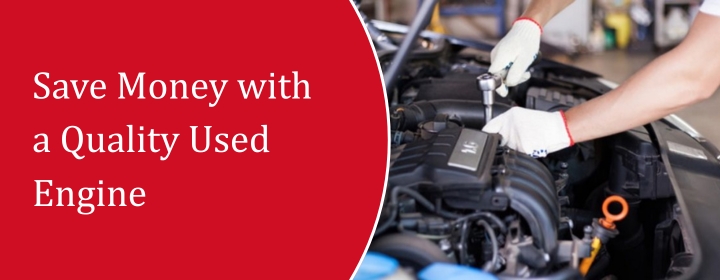
Save Money with a Quality Used Engine
Engines fail. It is expensive, and most people think the only fix is buying a brand-new motor. That is not always true. You may save a lot of money by buying decent secondhand engines instead of new ones. Thus, knowing what to look for, where to purchase, and how to prevent issues is crucial.
Why a Used Engine Makes Sense
A new engine is strong and untouched, but the price can shock you. Depending on the make and model, the cost can run into several thousand dollars, sometimes higher than the car’s value. At that point, replacing the whole car feels like the only option.
A quality used engine gives you another path. These engines are pulled from vehicles that were wrecked in accidents or retired for reasons other than engine failure. Many of them still have years of life left. They are tested, cleaned, and sold by salvage yards or parts suppliers. For drivers on a budget, that is often the smartest solution.
The savings are not just on the purchase price. Installation costs are lower because you are not dealing with complicated factory shipping or special orders. Plus, you keep your current car running, which means no extra monthly payments on a new vehicle.
What “Quality Used Engine” Actually Means
Not every used engine is worth your money. The word “quality” matters here. A proper used engine is:
- Tested: It should be compression tested or run-tested before being sold. This proves it can start and operate under normal conditions.
- Verified Mileage: Lower mileage engines usually last longer. Ask for paperwork or history when possible.
- Clean and Inspected: A supplier that takes time to clean and check for leaks, cracks, or worn parts is giving you better value.
- Backed by Warranty: Even short warranties show that the seller trusts the engine’s condition.
If a seller cannot provide these details, look elsewhere. Saving money should not mean gambling on a mystery part.
Steps to Buying the Right Engine
Buying a used motor is not complicated, but you need to be careful. Here is a simple checklist:
- Match Your Vehicle: Get your car’s VIN number and engine code. This ensures you order an engine that fits correctly.
- Ask About Mileage: Lower mileage is better, but condition matters too. Do not only chase numbers—look for engines that were serviced well.
- Check the Seller: Buy from a trusted supplier, not just anyone online. A real business will answer questions and provide proof of testing.
- Check Warranty: Even a 30- or 90-day warranty gives you protection. Therefore, checking the warranty is of utmost importance.
- Plan the Installation: A professional mechanic is the best choice. Because when you try to do it on your own, there are high chances of making a mistake.
By following these steps, you can get a quality used engine at a reasonable price.
Benefits Beyond the Price Tag
Saving money is your main objective apart from getting a quality used engine for your vehicle. A good used engine does not harm the environment; instead, it benefits it. Furthermore, by purchasing the already used engine, you end up reducing the metal waste. Henceforth, benefiting the environment in a very subtle way.
There is also speed. New engines often need to be ordered and shipped, which takes time. Used engines are usually in stock, ready for installation. That means your car can be back on the road in days, not weeks.
Common Mistakes to Avoid
Some buyers make errors that cost them later. Here are the big ones:
- Buying the cheapest option: Low price with no testing or warranty is risky. You could end up paying twice
- Skipping research: Not checking compatibility leads to wrong orders and wasted time.
- Ignoring the seller’s reputation: If reviews are bad or missing, that is a warning sign.
- Installing it yourself: Installing an engine without the right tools or skills can damage both the motor and the car.
Avoid these mistakes, and the process becomes much smoother.
Final Thoughts
Faulty engines don’t always mean the end of your automobile. If managed correctly, a used engine saves money, runs well, and helps the environment. Always inspect the condition, ask the correct questions, and purchase from reliable vendors.
About balance. Keep your automobile operating on a budget, but don’t eliminate shortcuts that need extra maintenance. Choose intelligently, and a secondhand engine may revitalize your automobile without breaking the budget.